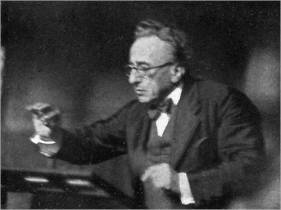
Leo Blech (April 21, 1871 – August 25, 1958) was a German opera composer and conductor who is perhaps most famous for his work at the Königliches Schauspielhaus (later the Berlin State Opera (Staatsoper Unter den Linden) from 1906 to 1937, and later as the conductor of Berlin's Städtische Oper from 1949 to 1953. Blech was known for his reliable, clear, and elegant performances, especially of works by Wagner, Verdi, and Bizet's Carmen (which he conducted over 600 times), and for his sensitivity as an accompanist. Blech was born to a Jewish family in Aachen, Rhenish Prussia. After attending the Hochschule in Berlin where he studied piano with Ernst Rudorff and composition from Woldemar Bargiel he took private lessons with Engelbert Humperdinck. After working briefly in sales, Blech earned a position as conductor at the Stadttheater in Aachen in 1893. From 1899 to 1906, he conducted at the Neues Deutsches Theater in Prague, before moving to the Königliches Schauspielhaus in Berlin. In 1913 he was promoted to General Music Director. Between 1923 and 1926, Blech took various positions at opera houses in Berlin and Vienna, including the Deutsches Opernhaus, the Berlin Volksoper, and the Vienna Volksoper. In 1926 he returned to the Schauspielhaus, now called the Staatsoper Unter den Linden, where he remained until Adolf Hitler's anti-semitic policies forced him into exile in Riga in 1937. During and after World War II, Blech conducted at the Royal Opera in Stockholm. In 1949 he returned to Berlin to conduct at the Städtische Oper, where he worked until 1953. Franz Schubert: Symphony no 9 in C major, D 944 "Great" London Symphony Orchestra
Leo Blech, conductor
Rec.: 15th November 1927 in London
| 
